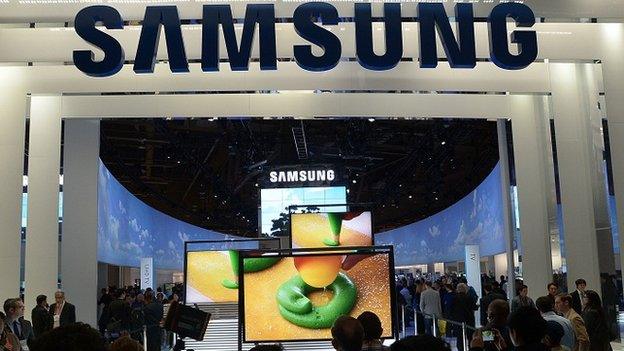LG launches fridges, washers and cookers that chat
- Published
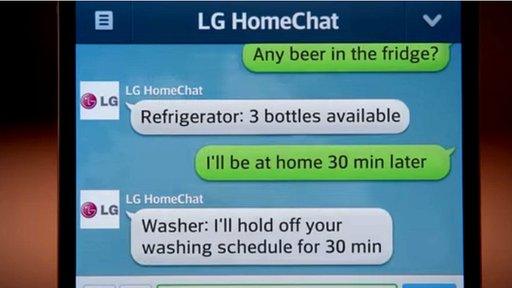
The chat app allows the homeowner to control their various appliances by text
A new LG text chat service allows fridge owners to see what food is inside as well as controlling other home appliances from the company.
The app can only be used to do this in South Korea, but LG said it planned to extend it, external to the US and other markets at a later date.
Samsung has already released, external air conditioners, fridges and washers that work with its rival Smart Home service.
But experts suggest such products may only appeal to a niche audience.
"I'm sure 10 years from now we will want more smart-aware appliances, but for now this represents a live beta-test," said Chris Green, principal technology analyst at the Davies Murphy Group consultancy.
"It's the equivalent of Ford building a concept car. It's about showing what can be done and seeing if there's an appetite for it."
Fridge photos
LG's HomeChat appliances communicate with their users via Line, a popular chat app in Asia, and are designed to understand natural language requests.
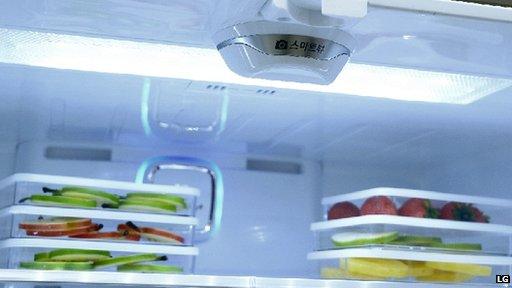
A camera built into the fridge's ceiling can take pictures of the contents of all its shelves
The refrigerator features an in-built wide-angle camera that takes a picture of its shelves' contents each time its doors are opened and closed.
As a result, one of the requests it can handle is to provide the latest photo so its owner can check if they are missing an item while visiting a shop.
In addition, the fridge's Freshness Tracker software can provide information about items that have passed their expiration dates. However, this feature requires the user to have entered details about each product into the fridge when they were placed in it.
The washing machine can be remotely activated by texting it a message saying: "Start washing cycle," and real-time updates can be obtained by asking: "What are you doing?"
And the oven can asked for recipe suggestions and then be instructed to preheat the equipment to the appropriate temperature for the chosen selection.
Hacked homes
LG suggested text messaging smart appliances offered a "new level of convenience".
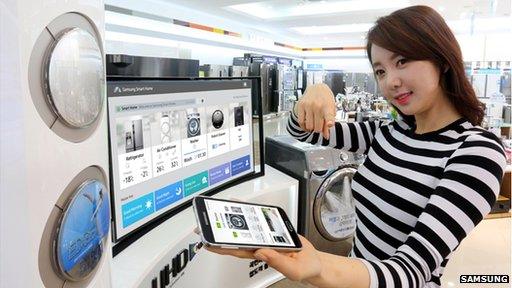
Samsung launched its rival Smart Home service in the US and South Korea in April
But Mr Green said the examples given sounded "gimmicky", adding that what consumers wanted was a greater level of automation rather than a new type of remote control.
"People love the idea of a fridge that reorders goods on its own - but the bottleneck there isn't the fridge manufacturer, it's the grocery providers," he said.
"In order for that concept to work, we need the items that we buy to become smarter themselves. They need RFID [radio-frequency identification] tags on them or something else that makes trackable what goes in or out of the fridge and freezer."
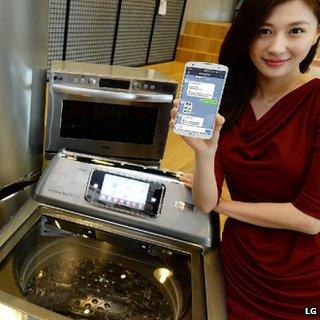
LG's HomeChat service is currently only available in South Korea
In the meantime, manufacturers of such smart devices may need to reassure potential customers about security concerns.
Data protection company Proofpoint reported earlier, external this year that it had discovered an internet-connected fridge had been hacked to send out spam emails.
There have also been reports of some, external smart TVs being vulnerable to hacks, external that might reveal information about their users' habits.
"It's the classic science-fiction nightmare story of somebody being able to hack in and control your cooker in the night," said Dr Joss Wright from the University of Oxford's Internet Institute,
"The more home control that can occur remotely the more chance that somebody can cause very severe mischief if they can get into it."
- Published17 January 2014
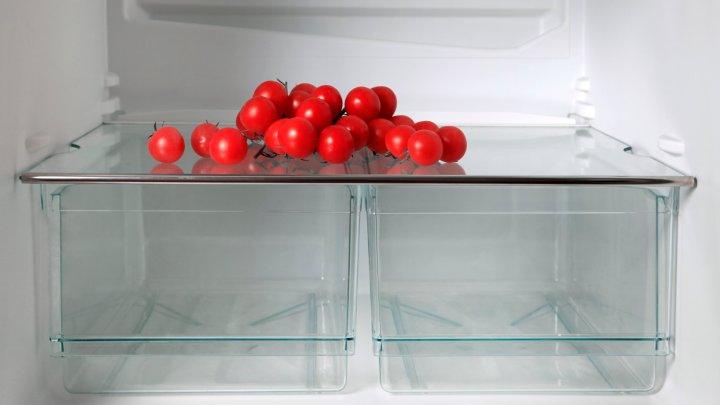
- Published20 November 2013
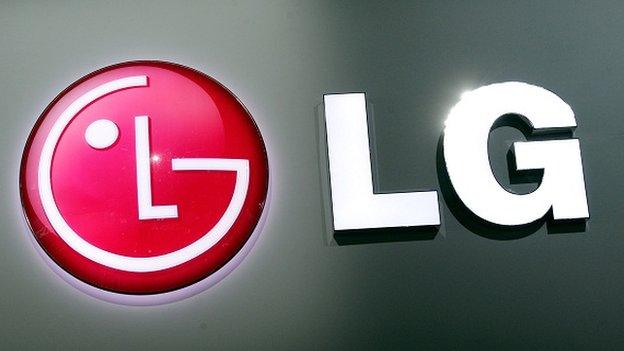
- Published5 January 2014
